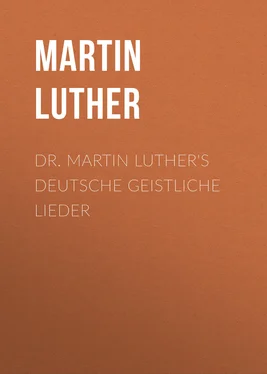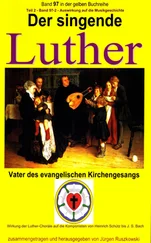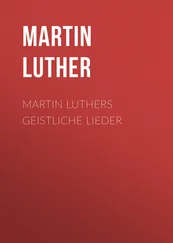Where friends and comrades sing in tune,
All evil passions vanish soon;
Hate, anger, envy, cannot stay,
All gloom and heartache melt away;
The lust of wealth, the cares that cling,
Are all forgotten while we sing.
Freely we take our joy herein,
For this sweet pleasure is no sin,
But pleaseth God far more, we know,
Than any joys the world can show;
The Devil's work it doth impede,
And hinders many a deadly deed.
Se fared it with King Saul of old;
When David struck his harp of gold,
So sweet and clear its tones rang out,
Saul's murderous thoughts were put to rout.
The heart grows still when I am heard,
And opens to God's Truth and Word;
So are we by Elisha taught,
Who on the harp the Spirit sought.
The best time of the year is mine,
When all the little birds combine
To sing until the earth and air
Are filled with sweet sounds everywhere;
And most the tender nightingale
Makes joyful every wood and dale,
Singing her love-song o'er and o'er,
For which we thank her evermore.
But yet more thanks are due from us
To the dear Lord who made her thus,
A singer apt to touch the heart,
Mistress of all my dearest art.
To God she sings by night and day,
Unwearied, praising Him alway;
Him I, too, laud in every song,
To whom all thanks and praise belong.
Translation by CATHARINE WINKWORTH.
A Warning by Dr. Martin Luther
Viel falscher Meister itzt Lieder tichten
Sihe dich fuer und lern sie recht richten
Wo Gott hin bawet sein Kirch und sein wort
Da will der Cenfel sein mit trug und mord.
Wittenberg, 1543;
Leipzig, 1545
False masters now abound, who songs indite;
Beware of them, and learn to judge them right:
Where God builds up his Church and Word, hard by
Satan is found with murder and a lie.
Translation by R. MASSIE
I. Nun freut euch, lieben Christen g'mein
Dear Christians, one and all rejoice
A Song of Thanksgiving for the great Benefits which God in Christ has mainifested to us
FIRST MELODY, Wittenberg, 1524. Harmony by H. SCHEIN, 1627.
SECOND MELODY, Wittenberg, 1535. Harmony by M. PRAETORIUS, 1610.
1. Dear Christians, one and all rejoice,
With exultation springing,
And with united heart and voice
And holy rapture singing,
Proclaim the wonders God hath done,
How his right arm the victory won;
Right dearly it hath cost him.
2. Fast bound in Satan's chains I lay,
Death brooded darkly o'er me;
Sin was my torment night and day,
Therein my mother bore me.
Deeper and deeper still I fell,
Life was become a living hell,
So firmly sin possessed me.
3. My good works could avail me naught,
For they with sin were stained;
Free-will against God's judgment fought,
And dead to good remained.
Grief drove me to despair, and I
Had nothing left me but to die,
To hell I fast was sinking.
4. God saw, in his eternal grace,
My sorrow out of measure;
He thought upon his tenderness-
To save was his good pleasure.
He turn'd to me a Father's heart-
Not small the cost – to heal my smart
He have his best and dearest.
5. He spake to his beloved Son:
'Tis time to take compassion;
Then go, bright jewel of my crown,
And bring to man salvation;
From sin and sorrow set him free,
Slay bitter death for him, that he
Конец ознакомительного фрагмента.
Текст предоставлен ООО «ЛитРес».
Прочитайте эту книгу целиком, купив полную легальную версию на ЛитРес.
Безопасно оплатить книгу можно банковской картой Visa, MasterCard, Maestro, со счета мобильного телефона, с платежного терминала, в салоне МТС или Связной, через PayPal, WebMoney, Яндекс.Деньги, QIWI Кошелек, бонусными картами или другим удобным Вам способом.
Quoted in the Christian Examiner , 1860, p. 240; transcribed Philadelphia, 1875.
The popular impression that the hymn "Ein' feste Burg" was produced in these circumstances is due, doubtless, to a parallel in the third stanza, to the famous saying imputed to Luther on the eve of the Diet of Worms: "I'll go, be there as many devils in the city as there be tiles on the roofs." The time of its composition was in the year 1529, just before the Diet of Augsburg. If not written in his temporary refuge, the noble "Burg" or "Festung" of Coburg, it must often have been sung there by him; and it was sung, says Merle d'Aubigne, "during the Diet, not only at Augsburg, but in all the churches of Saxony."
This much-quoted phrase is from Richter. It is reported as an expression of Melanchthon, looking on Luther's picture, " Fulmina erant singula verba tua."
Merle d'Aubigne, History of the Reformation, Vol. III.
This interesting and characteristic document was printed first in the Syntagma Musicum of Michael Praetorius, many of whose harmonies are to be found in this volume. It has been repeatedly copied since. I take it from Rambach, "Ueber D. Martin Luthers Verdienst um den Kirchengesang, oder Darstellung desjenigen was er als Liturg, als Liederdichter und Tonsetzer zur Verbesserung des oeffentlichen Gottesdienstes geleistet hat. Hamburg, 1813."
Quoted in Rambach, p. 215.
In more than one of his cantatas, especially that for the Reformationsfest.
Luther's mistake for Michael Weysse , author of a Moravian hymn-book of 1531.












